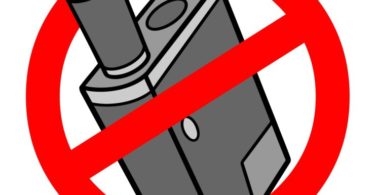The Colorado marijuana industry is pushing for new rules and more stringent regulation on vaping devices, including a potential ban on certain additives, amid a nationwide crisis over a mysterious lung disease linked to e-cigarettes and marijuana vape pens.
Industry stakeholders and the state’s Marijuana Enforcement Division are debating proposed rules that will be whittled down next month, and could go into effect as soon as Jan. 1. The proposals include adding more specific information on cannabis product labels, bringing changes that experts said would give consumers a better understanding of what they’re putting in their bodies.
Proposed changes have been in discussion for months, said Stephen Goldman, owner of PhytaTech, a cannabis testing company.
“This crisis definitely helped push it along faster,” he said.
Colorado has reported eight cases of the vaping-related illness, and six people have been hospitalized, according to the state’s Department of Public Health and Environment. Nationally, lung illnesses related to vaping have jumped to 805, up from 530 cases last week, the Centers for Disease Control announced Thursday. Twelve people have died, including five in the past week. The CDC has suggested the public refrain from using e-cigarette products, particularly those containing THC.
U.S. health officials said Friday that their investigation into an outbreak of severe vaping-related illnesses is increasingly focused on products that contain the marijuana compound THC.
Most of the 800 people who got sick vaped THC, the ingredient in marijuana that causes a high, according to the Centers for Disease Control and Prevention. But officials said they didn’t know if the THC is the problem or some other substance added to the vaping liquid, such as thickeners.
“The outbreak currently is pointing to a greater concern around THC-containing products,” said the CDC’s Dr. Anne Schuchat.
So far, investigators have not identified a particular electronic cigarette, vaping device, liquid or ingredient behind the outbreak. But officials say patients have mentioned the name Dank Vapes most frequently. Many of the people who got sick in Illinois and Wisconsin said they used prefilled THC cartridges sold in Dank Vapes packaging.
The health scare has prompted the federal government and local officials to take action. The Trump administration said it plans to ban flavored vaping products, while multiple states have already enacted the measure. In the most extensive action so far, Massachusetts this week became the first state to temporarily ban all vaping products.
Gov. Jared Polis told Colorado Public Radio on Wednesday that he’s exploring different options to address the epidemic, but that state law limits what he can do.
Goldman, a member of the working group on marijuana rule revisions, said the proposed changes would make sure all ingredients and additives are included on cannabis product labels, such as vaporizers. The next step, he said, is making risk assessments for those additives.
“That’s a pretty significant change for the better,” Goldman said.
Colorado industry watchers said a ban on certain additives may be down the road, but several marijuana companies are pushing for more regulation in a nascent industry that remains illegal at the federal level.
“There is enough evidence out there regarding certain additives … that they should be prohibited for use in vaporizers until further research can be performed that can demonstrate safety,” Tyrell Towle, director of chemistry for the cannabis research firm MedPharm, told a group of stakeholders and state regulators at a Sept. 20 working group meeting. MedPharm, the company noted, does not use chemical additives.
One of the main hurdles for addressing the vape-illness crisis has been a lack of federal authority. The Food and Drug Administration has an approved list of chemicals and oils — including some found in vaporizers — which are only tested when it comes to eating or putting on skin. Those chemicals can have entirely different consequences when they are heated up and inhaled, experts said.
“They fed a rat all this stuff, but they didn’t give it a mini rat vapor cartridge to see how that affected them,” Chris Barone, founder of The Clear, a cannabis concentrate company. “Until they test and see if it’s unsafe or safe, no one will really know.”
Even with the lack of federal regulation, Colorado cannabis companies still must adhere to a set of rules. The black market, however, is thriving with all types of products — and zero oversight.
“That’s where a lot of these cartridges are coming from,” Scott Karolchyk, MedPharm’s director of formulation development, said regarding contaminated vaporizers linked to illnesses. “And no one really knows what’s in them.”
The Associated Press contributed to this report.










